The US agenda for Iran and the JCPOA
The administration of US President Joe Biden has failed to return to the internationally backed nuclear deal with Iran four months into his administration.
While indirect negotiations continue, Washington is attempting to take the upper hand via demands that make no sense considering the US violation of the deal under former President Trump.
What could be reasonably expected to come out of the indirect talks in Vienna? Is the US ready to show some respect after violating the deal? Let us try to find out.
The stakes are high as the US hesitates to return to the deal. The outcome of the talks will determine not just the future of the dynamics between Tehran and Washington but also the durability of security in the whole region.
The US industrial-military-complex is rarely ready to give an inch when it comes to its financial and adventurous interests mostly under Israeli influence.
More than four months into the year 2021 the administration of US President Joe Biden has failed to return to the internationally backed nuclear deal with Iran.
While indirect negotiations continue, Washington is attempting to gain the upper hand by making demands which make no sense considering the unilateral US violation of the deal under former US President Donald J Trump.
President Biden has been very clear in saying that if Iran comes back into full compliance with its obligations under the JCPOA, the United States would do the same thing.
Antony Blinken, US Secretary of State
What to expect from Vienna Talks
Let us take an analytical look at the latest developments in relation to the Iran nuclear deal, also known as the JCPOA.
What should one expect to come out of the indirect talks in Vienna and is the US ready to show some respect after violating the deal?
Our overarching goal is to ensure that Iran's nuclear programme is permanently and verifiably constrained and that, on a permanent and verifiable basis, Iran will not be able to obtain a nuclear weapon.
Ned Price, US State Department
Whether the joint Commission's agenda produces a result or not depends on the Europeans and reminding the US of its obligations and the Americans acting on their commitments.
Saeed Khatibzadeh, Foreign Ministry Spokesperson
The stakes are high as the US hesitates to return to the deal. The outcome of the talks will determine not just the future of the dynamics between Tehran and Washington, but also the durability of security in the whole region.
The US industrial military complex is rarely ready to give an inch when it comes to its financial and adventurous interests, mostly under Israeli influence.
The cabinet is united in strongly opposing the proposed deal. This deal would pose a grave danger to the region, and to the world, and would threaten the very survival of the State of Israel.
The deal would not shut down a single nuclear facility in Iran, would not destroy a single centrifuge in Iran, and will not stop R&D on Iran's advanced centrifuges.
On the contrary, the deal would legitimize Iran's illegal nuclear program. It would leave Iran with a vast nuclear infrastructure.
Benjamin Netanyahu, Israeli Prime Minister
Washington is refusing to return to the Joint Comprehensive Plan of Action, although it had basically violated international law by withdrawing.
Tehran has so far taken methodical, retaliatory measures to respond to the US isolationism within the JCPOA framework.
How do you think it's justified for the Biden administration not to lift the sanctions illegally imposed by former President Trump?
Well, I think it was wrong. I mean, I think he should have lifted sanctions right away and entered the nuclear deal that Trump backed out of; entered it without conditions.
He hasn't done that. We'll see if he does enter that agreement again.
So yeah, I mean, I'm critical of that. I'm critical of the fact that he has continued to bomb Somalia that he's continued to intervene in Syria.
So he has a long way to go, certainly.
Daniel Kovalik, Professor International Human Rights, University of Pittsburgh School of Law
Tehran has stated quite categorically that it would only reverse its remedial measures, the phased reduction of its nuclear commitments under the JCPOA if the US removes all sanctions in one go.
The US, meanwhile, appears to be under Israeli pressure, as is the case oftentimes, to make sure that US administration would not take any action against Tel Aviv's interests.
That has complicated the indirect Tehran-Washington talks even further.
Israel has also been stepping up aggression against Palestinians.
Tel Aviv has been pressuring the Biden administration, through lobbies in Washington, to make sure that Tehran cannot win its absolute right, as defined in the nuclear deal.
During the 2016 presidential election, then candidate Joe Biden vowed to reverse the Trump administration's aggressive policies, including foreign policy.
How much of that do you think has materialized today? Do you see a major shift in foreign policy?
Very little separation in terms of operational impact, there's been a rhetorical difference. President Biden has said things to our allies that give voice to his intent to improve alliances and things of that nature, to rebuild alliances. But at the end of the day, there's been no major shift in foreign policy across the board.
Scott Ritter, Former UN weapons Inspector in Iraq, Former US Marine intelligence officer
Scott Ritter is a former UN weapons inspector in Iraq and a former US Marine intelligence officer. He's the author of the book deal breaker, Donald Trump and the Unmaking of the Iran Nuclear Deal.
The Israeli regime’s aggression against the besieged Gaza strip, on occupied Palestinian land in the West Bank and elsewhere, has also been affecting the dynamics of the Tehran-Washington standoff over the nuclear deal.
We're doing everything we can to make sure that Iran never acquires a nuclear weapon. An Iran with a nuclear weapon, or with the capacity to have one in very short order, is an Iran that is likely to act with even greater impunity when it comes to these other actions.
Antony Blinken, US Secretary of State
Republicans in Congress, for instance, believe that the Hamas resistance movement's retaliatory attacks in defense of Palestinians in the face of Israeli aggression is reason enough to seize up the talks in Vienna.
The Biden administration, meanwhile, voices mild opposition to the Zionist regimes military adventurism, but at the same time, justifies its attitude, and at times, even aids and abets Tel Aviv.
Are the US and the west seeking to prevent Iran from achieving economic prosperity and why would a weaker Iran serve their interests better?
Western regimes have a general policy of making countries suffer if they do not abide by their demands and their orders. So the United States is imposing maximum pressure on the Iranians, to make the Iranian nation suffer as much as possible, to force Iran to abide by the will of the Empire. But it's not just Iran.
Dr Mohammad Marandi, Tehran University
The longstanding US support for Israel is no big surprise. Under Prime Minister Benjamin Netanyahu the Zionist regime intends to make sure Iran's nuclear program is disrupted.
Iran has been stepping up its nuclear program in response to the illegal sanctions imposed under former President Donald Trump.
Trump was pro Israel in a more straightforward way than his successor. He was also anti Iran in the same manner since the JCPOA had been negotiated under his nemesis, former President Barack Obama.
Today, Biden has a tough job, he could continue pandering to Tel Aviv, or just does the right thing in an effort to, maybe, restore some credibility for the United States on the international stage, such as sticking to signed deals.
Again, all they would have had to done is re entered the agreement that President Obama had entered into, and they're not doing that.
It makes you wonder whether they just are trying to buy time and that they really don't want to re enter the deal. So that remains to be seen.
I think that they would like to re enter it on better terms than Obama did, If they can.
And again, maybe they want to leave the option open of not returning to it all, and continuing the pressure on Iran.
Daniel Kovalik, Professor International Human Rights, University of Pittsburgh School of Law
As the US procrastinates over its return to the deal, the region of West Asia keeps grappling with upheaval and uncertainty.
The manufactured crisis in the Middle East could end up with no victory in the US foreign policy sector if the Biden team does not change course.
While Israel spares no effort to sabotage the Iran nuclear program and negotiations, Tehran remains resolute and has made remarkable progress and improvements to its civilian nuclear capabilities.
We just sent a new letter to the agency saying that we will start from tomorrow, enrichment up to 60%.
And that is for Iran needs to produce certain radio isotopes and needed for, you know, certain medical treatments.
The letter has been sent today to the agency and we will start this important job from tomorrow. Obviously, this is certainly according to our needs.
Abbas Araqchi, Deputy Foreign Minister, Nuclear Negotiation Team
The former US administration did its best to make a Biden return to the JCPOA next to impossible. And today as Biden struggles to show a gesture to Iran, he has to deal with not just Israel, but also Trump's past shenanigans.
How would the American people and the international community feel if due to the illogical US demands the talks resulted in a dead end?
Most informed people, when it comes to the realities of Iran, its nuclear program and the efforts that have been underway for some time now to to bring them under inspection based controls.
Indeed, the American people have been brainwashed with disinformation put forward by the United States, by the intelligence community in the United States and by Europe and others who have been painting Iran as a nation that at the very minimum sought to acquire nuclear weapons. I mean, that that's the accepted narrative today in the United States.
Scott Ritter, Former UN weapons Inspector in Iraq, Former US Marine intelligence officer
The US return to compliance with the nuclear deal is on the onus of President Joe Biden who, as vice president during the Obama era, played a key role in the 2015 agreements.
But can he now bring the United States back to the deal and overcome the internal power play?
We are negotiating a plan that will have in it a capacity for enforcement. We don't even have diplomatic relations with Iran right now.
And the senator’s letter erroneously asserts that this is a legally binding plan. It's not. That's number one.
Number two, it is incorrect when it says that Congress could actually modify the terms of an agreement at any time, that's flat wrong.
They don't have the right to modify, an agreement reached executive to executive, between countries, between leaders of the country.
John Kerry, Former US Secretary of State
As work on the restoration of the JCPOA continues, there are hopes that the long negotiations would bear tangible results that indicate respect for the Iranian nation.
Throughout the 20th century, the US has violated the rights of many nations. That has not changed today.
The Biden administration's foreign policy apparatus is expected to consider US reputation, not just in regard to Iran, but the whole international community.
I think the international community knows quite well who's to blame.
The Iranians have very simple expectations. The Americans abide by the deal in full and then Iran will abide by the deal in full in the past has not what happened in the past.
During Obama, the Iranians were committed to their side of the bargain. And the Americans weren't. During Trump, of course, it got even worse.
So the world knows what's going on. But the problem is that the Western media is never going to condemn the United States, no matter what the United States does, it won't be condemned. There will be no real pressure on the country.
Dr Mohammad Marandi, Tehran University
There are no grounds for the stated concerns of the west about a nuclear Iran. Both under duress from sanctions and during negotiations Tehran has always maintained that its nuclear program is solely for peaceful purposes.
The leader of the Islamic Revolution, Ayatollah Seyyed Ali Khamenei, went as far as asserting in 2019 that Iran has always had the ability to tread this path, yet an edict has been issued declaring it Haram and proscribing it in accordance with Islamic jurisprudence.
We don't have any belief in the atomic bomb and do not pursue it. Our religious principles and beliefs forbid the acquisition and use of such weapons of mass murder. We consider such weapons to be a symbol of destruction.
Ayatollah Seyyed Ali Khamenei, Leader, Islamic Republic of Iran
Assessments by Western monitoring organizations, as well as spy agencies, have corroborated the peaceful nature of the Iranian nuclear program whereas unquestionably rogue regimes in the region pursue their aggressive, and at times nucleated, agenda with impunity.
From the Biden administration's perspective, the sanctions were not illegally imposed, the United States had every right to withdraw from the JCPOA, it was bad policy.
But you know, the JCPOA is not a lifelong commitment, parties are able to withdraw, and the United States withdrew, and in doing so liberated itself to impose whatever sanctions it saw fit on Iran.
Now, they're consistent with US law. They might be in violation of the law, in terms of international law, but even then that's up for debate.
Scott Ritter, Former UN weapons Inspector in Iraq, Former US Marine Intelligence officer
One would be justified in saying that the Biden administration does not have much leverage with Iran.
Tehran has already learned not only how to survive, but also how to prosper despite brutal sanctions meant to cripple the Iranian nation.
Biden knows that the previous administration stepped up pressure to the maximum to bring Tehran to its knees, but to no avail.
Today, the ball is in the Court of the United States. And Washington has to return and fulfill its obligations.
Hassan Rouhani, President of the Islamic Republic of Iran
Now that he is in office, the Democratic president has to realize that his chance for a foreign policy legacy with regard to Iran is short lived, though currently up for grabs.
Can Biden fight all the anti Iran sentiments running rampant within the US government and among some of its allies?
Nothing much has really changed, the United States has a tradition of having a rather stable foreign policy, regardless of who's the president, the general worldview of the United States doesn't really change; the United States considers itself to be exceptional.
It considers itself to be superior, both morally and of course, militarily, politically and economically, than other countries. And therefore they believe that they have special privileges and rights.
So while they demand other countries abide by international law, the United States never abides by international law.
Dr Mohammad Marandi, Tehran University
From one perspective, the US dilemma is not a huge one, Washington must simply opt for the right thing to do, which is a return to the JCPOA and the removal of all illegal sanctions imposed on Iran by Trump.
Our position is very clear. Several countries had clinched an agreement with Iran. This was followed by a UN Security Council resolution. And from our perspective, this is a commitment from all the involved parties in this deal.
If the Americans left this accord unilaterally and didn't see fit to deliver on their commitments, this, in our view, is a breach of the principles that are the norms of international behavior.
Our view is that if the Americans have any claims on this issue, they have to return to 2015, which is when the Accord was agreed on. We can start from there. So the Americans should lift all the imposed sanctions.
Hossein Dehghan, Military Advisor to the Leadership
Negotiations around returning to the Joint Comprehensive Plan of Action, The JCPOA, have stretched on for weeks now, so far with little to show for it, although we've heard plenty of optimism from a number of involved parties.
What is the latest in Vienna and what are some of the domestic dynamics in the US that may be complicating or slowing down any attempt to restore the nuclear deal?
Right now, I think we have an administration in the US that genuinely wants to see a revival of the JCPOA. There are, you know, certain questions that are unresolved between the parties, mainly between the US and Iran, about the timing.
Obviously, Iran wants as much sanctions relief up front. Whereas I think on the US side, they want the sanctions relief to be more gradual, and they want to see it conditioned to certain moves on the Iranian side.
So we still don't know yet how the Europeans are going to be able to sort of bridge this gap.
But nonetheless, I think both the leadership in the US and Iran would like to see the JCPOA, once again, become an effective accord.
However, the Biden administration has some real political headaches here in Washington; the Republican opposition to the JCPOA is very, very strong.
This nuclear accord has basically become an issue that divides American lawmakers along partisan lines; Republicans are pretty much united with a conviction, the belief, that Donald Trump made the best decision in May 2018 when he pulled the US out of the deal unilaterally.
So we need to understand that, of course, the Biden administration has the authority to bring the US back into the JCPOA.
So this Republican opposition will not in itself block Biden from being able to make that move.
But it does complicate the picture right now, as we're seeing the massacre that's taking place in Gaza. This violence in Palestine is now becoming increasingly connected to the JCPOA.
Georgio Cafiero, CEO of Gulf state analytics
Could you elaborate on that, how exactly does the ongoing Siege of Gaza by the so called Israeli Defence Forces fit into the whole situation here?
The Israeli leadership is really worried about the geopolitical ramifications of a US return to the JCPOA.
The nightmare for Netanyahu's government is that tension could decrease between Washington and Tehran, if there is a successful revival of the JCPOA. Just to be clear, if the US comes back to the accord, there are still going to be many problems in the US-Iran relationship.
But nonetheless, we all know that if the JCPOA is salvaged there's going to be a real opportunity for the two countries to try to move their relationship in a better direction, raising the specter of a real thaw in US-Iran relations.
A concern for the Israeli officials is that such a scenario would decrease Israel's strategic value to the United States. And we've seen numerous actions taken by the Israelis.
So it's very easy to imagine the Israelis looking at the situation in Gaza as an opportunity to make it increasingly difficult, and more politically costly, for Joe Biden to do what he needs to do to bring the US back to this accord that the US entered back in 2015 after years and years of negotiations.
Georgio Cafiero, CEO of Gulf state analytics
Total removal of all sanctions is the only first step that could be taken as a positive gesture to Tehran and indicate seriousness on the side of Washington to de-escalate tensions in the region.
With the US sticking to Trump's violation of law today, one could see there is not much difference between Republicans and Democrats and that the US imperialistic agenda moves forward, unabated, no matter who is residing in the White House.
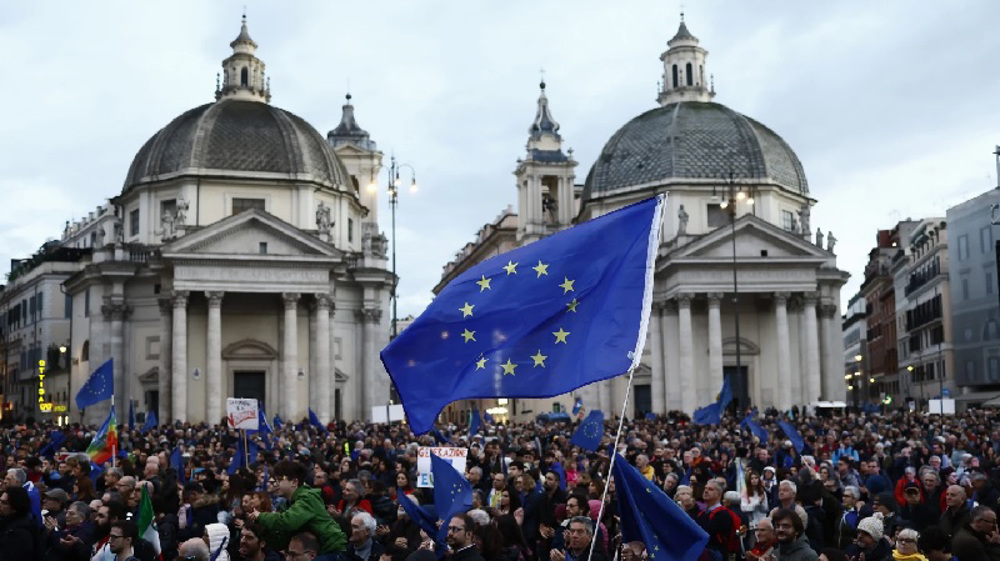
Italians against ReArm Europe
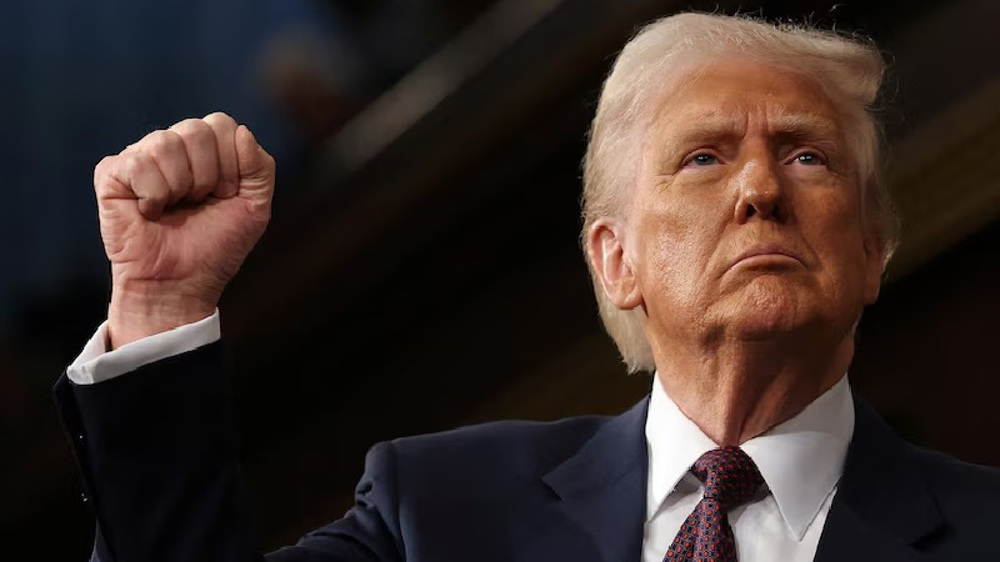
Global trade war on the horizon
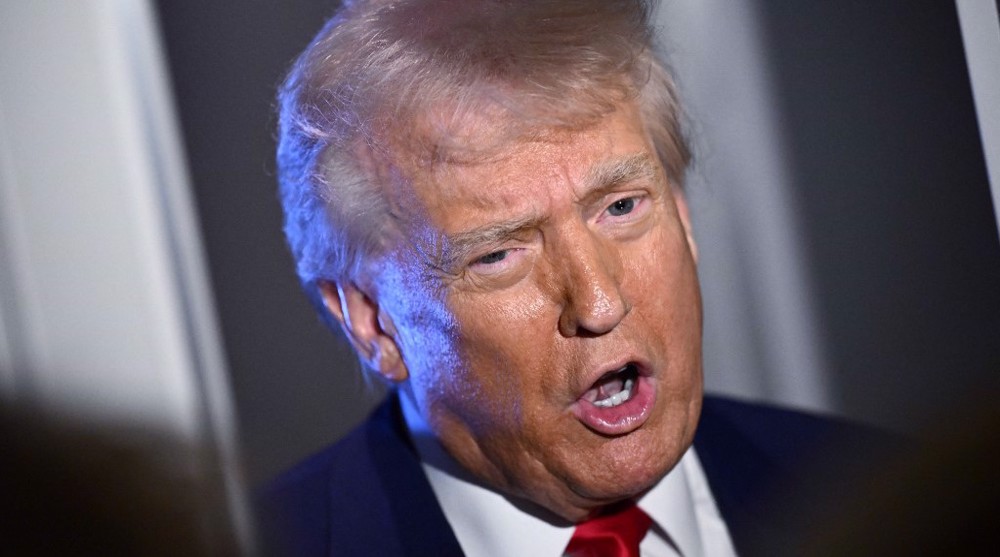
Negative impact of Trump tariffs on UK economy
US launches more airstrikes on various areas across Yemen
VIDEO | Press TV's news headlines
VIDEO | Parisians hold rally in support of Palestinians
Nigerian security agents plan fresh attacks on followers of Sheikh Zakzaky in Abuja: Report
Bill to seize mosques in India gains presidential assent
Over 600,000 children in Gaza at risk of ‘permanent paralysis’: Ministry
VIDEO | US, Europe anti-Trump protests
Yemen accuses US of targeting civilians in Eid airstrike


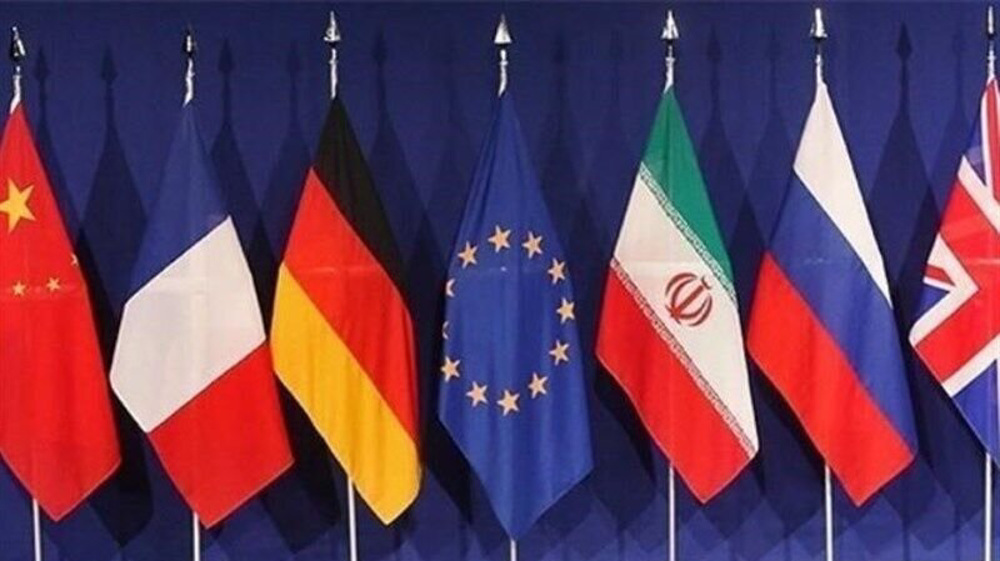
















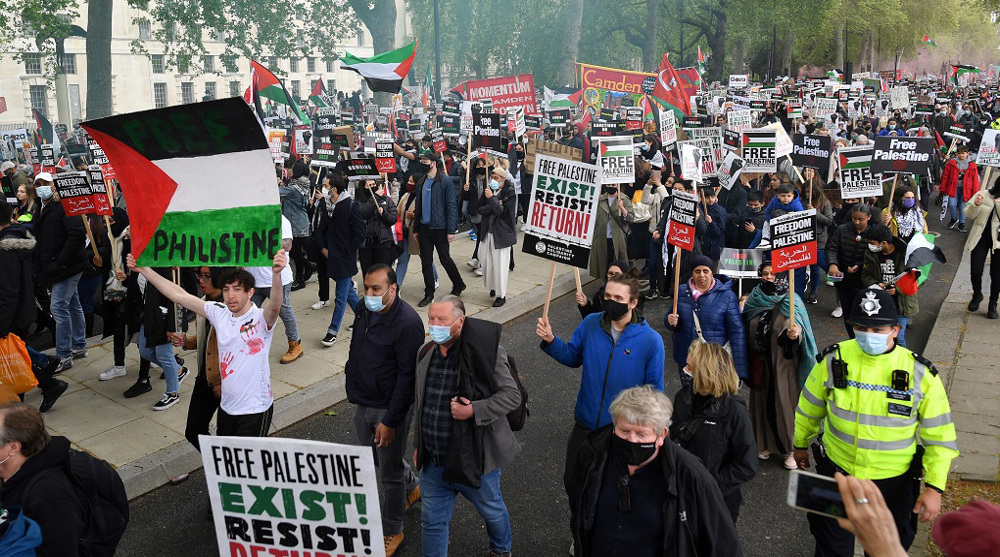

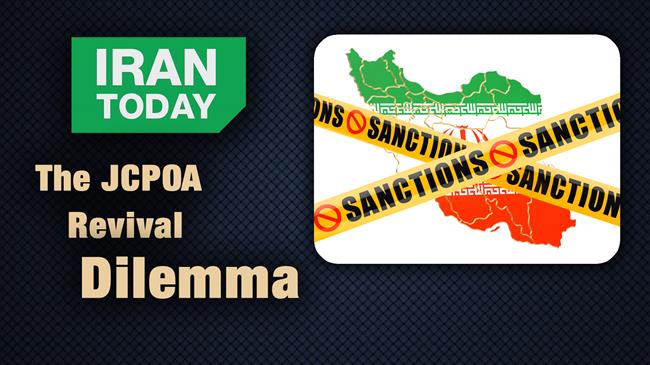
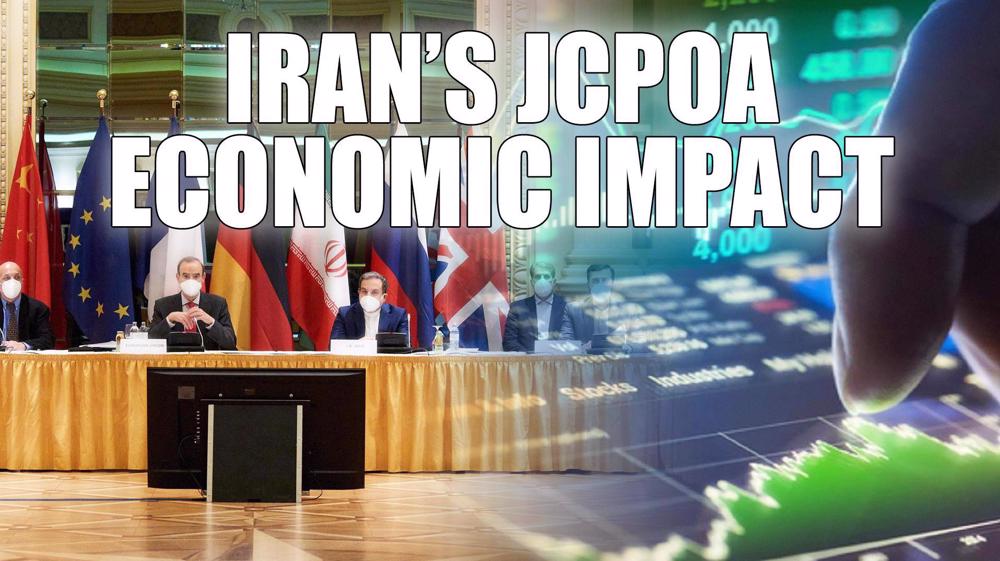

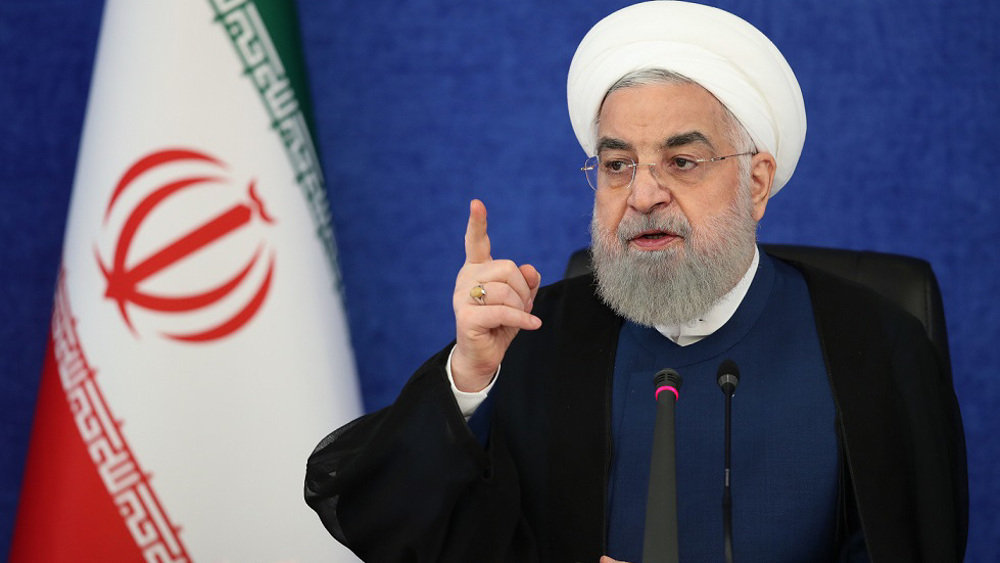


 This makes it easy to access the Press TV website
This makes it easy to access the Press TV website